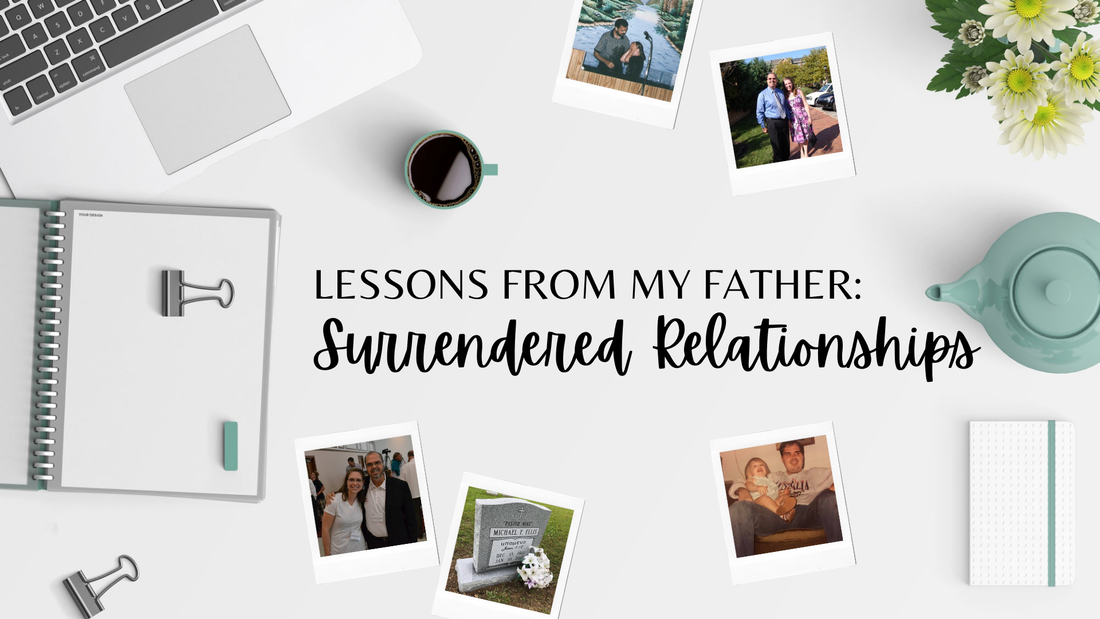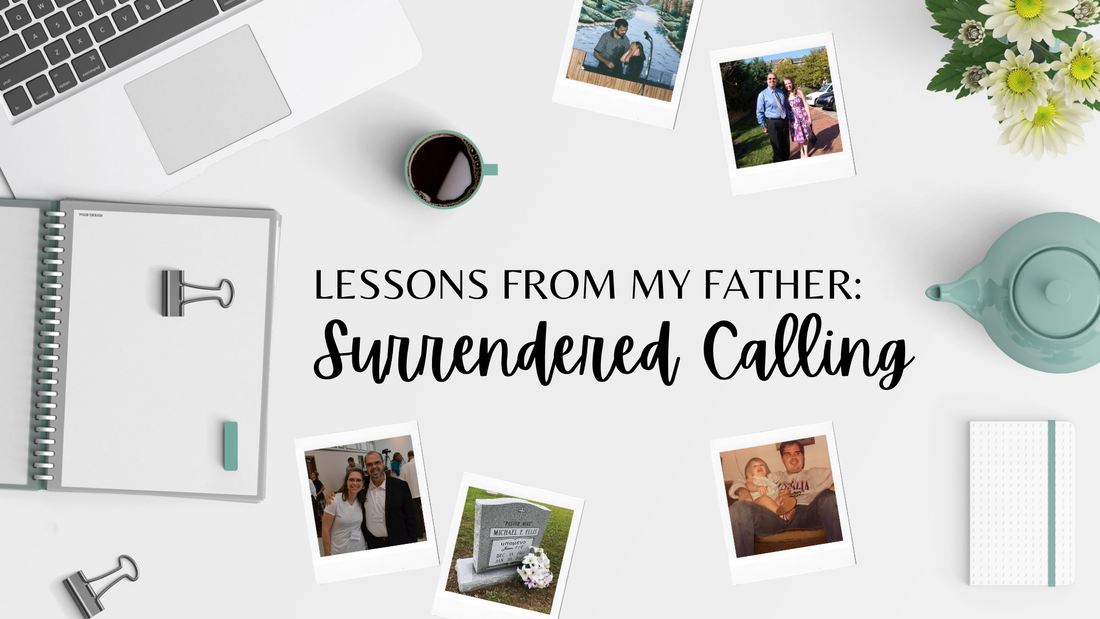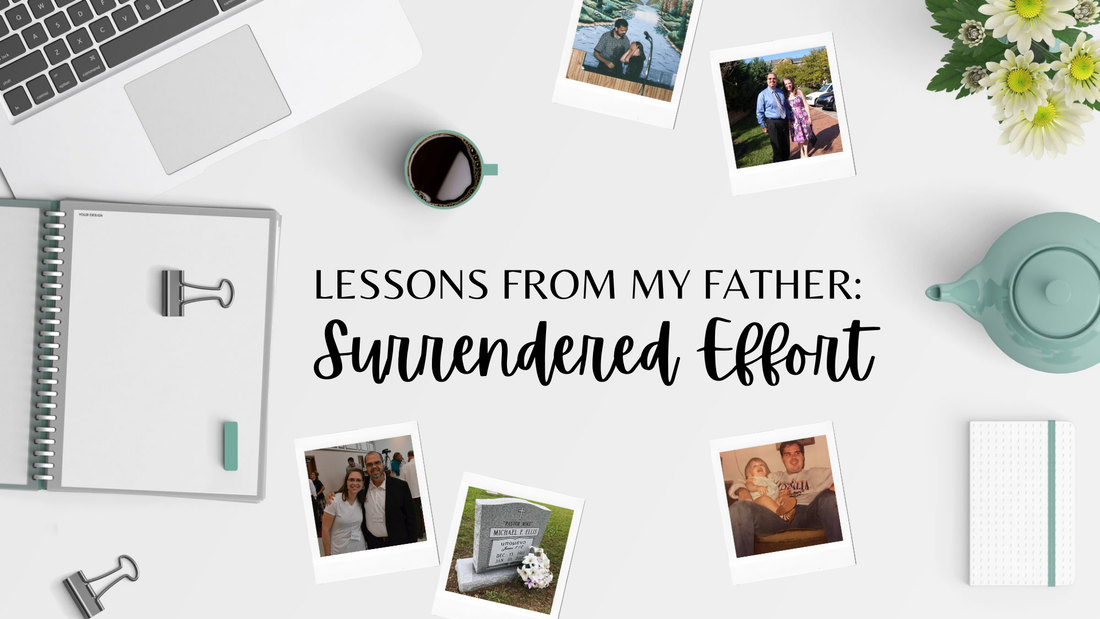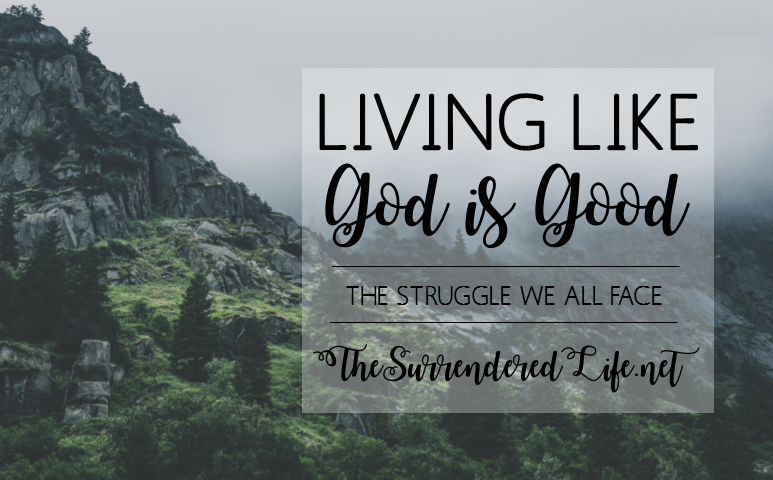|
Another lesson that my dad taught me about surrender had to do with relationships. None of these lessons I’ve been sharing have been easy, but this one was particularly difficult for me. And unfortunately, it’s one I’ve had to learn many times over. THE ROOT OF MY WRESTLINGThe first time I remember wrestling through surrender was when I was 14 years old. I went through a phase of immense fear, and it was almost entirely related to losing my parents and being alone. It eventually got to the point where I wasn’t even able to sleep, because I’d face dreams of losing my parents, or I’d be terrified something would happen to them overnight.
None of this was rational, obviously. But fear never is. When my dad realized what was happening, he sat me down to talk about it, as any good father would. But instead of reassurances about it all being in my head, or promises that nothing would happen, he instead challenged me with this: what if the worst did happen? In my fear, I wanted guarantees – don’t we all? - but my dad’s question stopped me in my tracks. “If the worst happens,” he said, “will you still trust God?” I didn’t know how to answer at first. At this point, I had not connected my fears with my relationship with God. What my dad was wisely pointing out is that my fear was not nearly as tied to him and my mom as I thought it was; rather, my fear was that God was not good, loving, or trustworthy. “If you don’t decide now that God is good and that you can trust him,” he explained, “then if or when something bad does happen, you will fall apart.” My dad then brought my struggles back to the start of my relationship with God. Was I sincere? Did I really surrender my life to Christ? If so, this was just the next step. God was calling me to act on what I’d said by trusting Him to care for my parents and for me, regardless of what that would end up looking like. “If you wait to decide,” my dad challenged me, “then you’ll decide wrong.” It was time to act on what I knew to be true, rather than what I felt could be true: God is good. God loves me. God loves my parents. God is in control. Even if the worst happens, these things are still true and God will help me through.
0 Comments
I’ve always loved my comfort zone. As a baby, I stubbornly clung to my comfort zone and refused to arrive on time. My poor mother had to be induced twice before I entered the world. As a child, I dragged my feet in whatever way I could when it came to something new. Learn to read? Why? I’d rather be read to. Tie my shoes? I’ll just stick with slip-ons. What’s that? You want to go on a roller coaster? #Nope. I could go on, but you get the picture.
One of the best things my parents did for me was push me beyond that comfort zone to try or to learn something new, even if it was uncomfortable. Not everything that I tried became a favorite (I still don’t like roller coasters), but I discovered many things that I actually enjoyed, such as reading. By the time I was a teenager, I always carried a book with me and easily read several each week. I’d like to say that I’ve grown into an adventurous adult who enjoys stepping out of my comfort zone, but I can barely even type that without laughing. Those who know me best know that’s not the case and probably never will be. I’m still prone to anxiety about the unknown, still withdraw from things that are uncomfortable, and many times cherish my comfort zone perhaps a bit too much. Thankfully, my husband and my mom recognize these things about me and still encourage me to take those scary first steps of something new or unknown, picking up where my dad left off and often using his (or my own!) words against me when it comes to change. Last week I began a series on 5 lessons my father taught me about surrender in honor of his 5th anniversary in Heaven. Click here to go back and read the first post. There’s an old song by Steven Curtis Chapman that has a verse that resonates with me:
I never did like the word mediocre I never wanted it to be said of me, oh, no Just point me to the top and I'd go over, over Looking for the very best that could be Perfectionist. Over-achiever. People pleaser. Yep, that’s me. In my early 20s, God began to show me my tendency to be a perfectionist in my approach to life, revealing that I often associate my worth, growth, and status with Him based on my own ability to achieve certain things. Think “works based salvation.” While I wasn’t raised on “works,” my own personality took over and I quickly began to impose certain things in my life, thinking that if I did those things, and if I did them well, then I’d be accepted and loved. I often felt that everything relied on me and my own ability, whether it was related to work, church, friends, family, and especially in my relationship with God. As a result, when I failed at a task, I’d struggle to get past it, often dwelling on it to a point of self-pity, and stalling out. Even when I thought I did everything “right,” the satisfaction was short lived as my mind would immediately fixate on whatever came next. I constantly told myself I needed to be more and do more. In the moment, I didn’t see what I was doing for what it was, but looking back, I see it more and more clearly. And by the way, I still haven’t gotten this fully fixed in my own life! Unfortunately, it’s still something I struggle with, even ten years later. However, I am now more aware of my temptations and more equipped to overcome them, thanks in large part to my dad. “Life is pain.” – The Princess Bride
We live in a world of instant gratification. We want what we want and we want it now. But there’s a danger in getting comfortable with (and then beginning to expect) quick fixes. Unfortunately, when things aren’t easy or quick, we can be prone toward anger and we can often be guilty of taking our anger out on those around us. Our discouragement and frustration usually end in giving up (failure to overcome our struggles) and giving in (isolating and indulging ourselves to deal with the failure). Our reaction to hardship in life reveals the biggest idol we all struggle with: a pain- and problem-free life. On the surface, this seems like it shouldn’t be an idol. It seems like a good thing. And we certainly don’t want to have a pain- and problem-FILLED life. So what’s the problem here? The problem is that when we fail to surrender this desire for ease and comfort, we can be guilty of making decisions based on whether we believe it will increase our ease and comfort or not, rather than based on God’s goodness, love, and ability to provide for us regardless of our circumstances. When we have a goal of living a pain- and problem-free life, we begin to do whatever it takes to get it – whatever the cost. When I look back on my life and the moments that I believe shaped me into who I am today, I have to admit that those moments were some of the most painful experiences of my life. And yet, God used those times of suffering to make me into the person I am today. We all have moments in life that define us, and unfortunately, they’re often related to suffering of some kind. As much as we’d like to think that it’s the mountain top experiences that shape us, that’s rarely the case. Rather, God tends to use the valleys of our lives to grow us, to change us, and to make us into the image of Christ, and it’s those very moments that enable us to experience the joy of the mountain top. The valley is dark, scary, and painful. Sometimes the suffering is a direct result of our own sinful choices. Sometimes it’s the result of the sinful choices of others. And sometimes it is simply the result of living in a fallen world. Regardless of the cause, the way we respond to resistance, pain, and difficulty reveals what we truly believe in the deepest part of us. In those moments, we are faced with some of the hardest questions we will ever face: Do I really believe God is good? Do I really believe God loves me? Do I really believe God is in control? Do I really believe God is all I need? MAKING GOD ENOUGHIf you’ve been a Christian for any length of time, you’ve probably heard the saying, “You won’t know God is all you need until God is all you have.”
Unfortunately, it’s a common saying because, for the most part, it’s true. At least, the idea behind it is true. But the phrasing itself lends itself to the idea that you won’t really know if God is enough until you’ve lost everything. And while it’s true that you won’t know it by experience until that point, I’d say that you can know that God is enough before you lose everything. In fact, that’s actually the goal. If we wait until we experience the loss of what we love to discover if God is enough, we will find that God is not enough. Instead, we must learn how to let God satisfy us in the here and now so that when the times of crisis come, we already know that He will be enough and He will carry us through. Otherwise, when we experience the pain and suffering that is inevitable in life, we will instead turn to ourselves or others to make us feel better, following the path of idolatry we talked about last week. The fact of the matter is that what you believe in the light is what will be proven in the dark. If you want God to be enough for you then, you must make Him enough now. We all like to talk about God being all that we need, but the sad reality is that while we are good at talking about God being all we need, many of us are living as though God is not all we need. Yes, God is enough. But if we’re really going to be happy, we also need this relationship. Yes, God is enough. But if we’re really going to be content, we also need to live in this particular neighborhood. Yes, God is enough. But if we’re really going to show kindness to those around us, they need to show us respect back. Yes, God is enough. But when hurt and disappointment enter my life, we really need to be able to distract from it by indulging in junk food, TV, shopping, or maybe even a substance. Yes, God is enough. But. BLIND SPOTSI think one of the biggest blind spots many of us possess in life is idolatry. After all, we don’t often see people worshiping blocks of wood or statues of gold, so we find it easy to brush off idolatry as something from Biblical times that’s not really an issue anymore.
The result? At worst, we can be guilty of dismissing idolatry as a modern-day issue altogether. At best, we may find ourselves resorting to the Sunday-school teaching of associating idols with things such as video games, TV, and money. And while to a certain extent that can be true, the truth is that the most dangerous idols we worship are not physical objects. Hope is a funny thing. It can lead to excitement, joy, and peace. But hope can also lead to despair, discouragement, and defeat. Hope fulfilled is the best thing in the world. Hope disappointed is the worst thing in the world. DANGER AHEADWhen Jesus came to the region of Caesarea Philippi, |
bethany HARRISIn a word: passionate. Archives
January 2022
Categories
All
|











